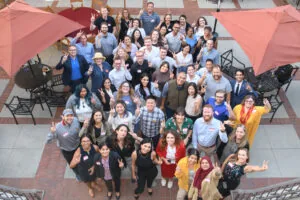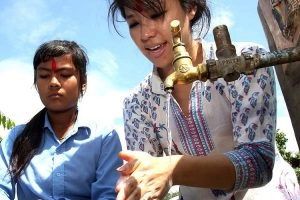Description
The COVID-19 pandemic has exposed numerous inequities in society — what actions can be taken now to create a more level playing field for everyone? In this seminar, a panel of experts discuss proposed solutions and ideas for building a better society from the lessons we’ve learned.
Panelists include Sofia Gruskin, director of USC Institute on Inequalities in Global Health and professor of preventative medicine; Howard Hu, professor and Flora L. Thornton Chair of the Department of Preventative Medicine; and Kyla Thomas, associate sociologist at USC Dornsife Center for Economic and Social Research.
Moderated by Manuel Pastor, director of USC Dornsife Equity Research Institute, Distinguished Professor of Sociology and American Studies and Ethnicity, and Turpanjian Chair in Civil Society and Social Change.
Who Will Benefit
– Those hoping to address the structural inequalities underscored by the pandemic
– Public health experts who want to understand the wider implications of surveillance methods, such as contact tracing
– Those looking to dig deeper into international COVID-19 regulations and how they’re being carried out
About Our Featured Faculty
Manuel Pastor is a Distinguished Professor of Sociology and American Studies and Ethnicity at USC Dornsife College of Letters, Arts and Sciences. He currently directs the Program for Environmental and Regional Equity (PERE) at USC and USC’s Center for the Study of Immigrant Integration (CSII). Pastor’s research has generally focused on issues of the economic, environmental and social conditions facing low-income urban communities – and the social movements seeking to change those realities. Pastor holds an economics PhD from the University of Massachusetts, Amherst, and is the inaugural holder of the Turpanjian Chair in Civil Society and Social Change at USC.
Howard Hu, MD, MPH, ScD, is a professor and the Flora L. Thornton Chair of the Department of Preventive Medicine at the Keck School of Medicine at USC. He is a physician-scientist, internist and preventive medicine specialist, with a doctoral degree in epidemiology. Since 1990, Hu has led multi-institutional and international teams of scientists, students and fellows devoted to investigating the environmental, nutritional, social, psychosocial, genetic and epigenetic determinants of chronic disease and impaired child development in birth cohort and aging cohort studies in the U.S., Mexico, India, China and elsewhere around the world. His team’s work has generated over 300 publications and won several awards, such as the 1999 Progress and Achievement Award from the U.S. NIH/NIEHS, the 2009 Linus Pauling Lifetime Achievement Award, the 2011 Award of Excellence from the American Public Health Association, and the 2015 John Goldsmith Award for Outstanding Contributions from the International Society for Environmental Epidemiology.
Kyla Thomas is an associate sociologist at the Dornsife Center for Economic and Social Research. She holds a PhD in sociology from Princeton University and a BA in both sociology and communication studies from UCLA. Broadly, her research interests include the sociology of culture, social stratification, economic sociology and experimental methods. Currently, her work focuses on the cultural mechanisms through which social and economic inequalities are reproduced in institutions like the U.S. labor market. She is also the director of LABarometer, a quarterly survey designed to track social and economic conditions in Los Angeles County with a focus on four key issues: livability, mobility, sustainability and affordability.
Sofia Gruskin directs the USC Institute on Inequalities in Global Health (IIGH). She holds appointments as professor of preventive medicine and chief of the Disease Prevention, Policy and Global Health Division at the Keck School of Medicine, Professor of Law at the Gould School of Law, and as an affiliate faculty member with the Spatial Sciences Institute at the USC Dornsife College of Letters, Arts and Sciences. Within USC, she is highly engaged in university service including as co-chair of the USC Senate Sustainability Committee, a member of the Joint Academic Senate and Provost Task Force on Interdisciplinary Communities, and primary convener of the USC Law and Global Health Collaboration.



